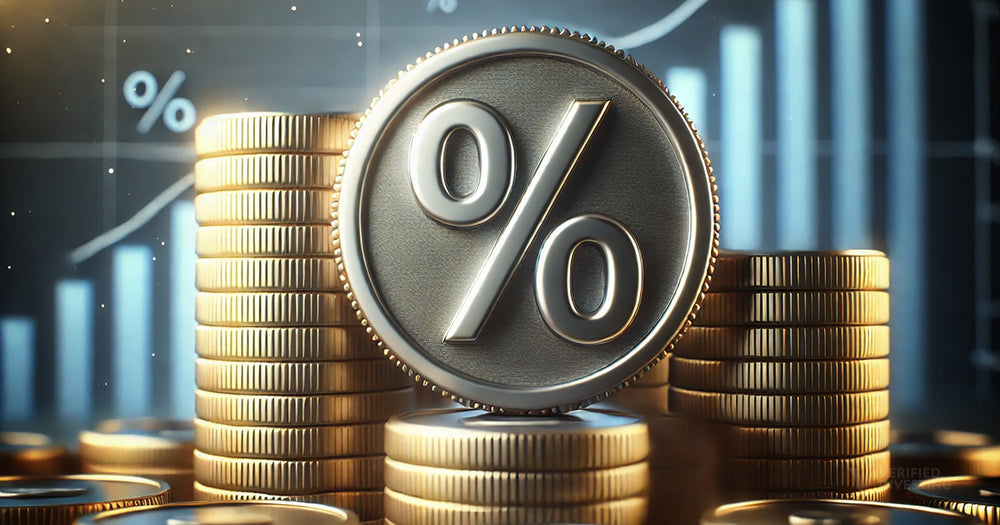Why Do Rate Hikes Slow The Economy?

Central banks use rate hikes to fight inflation by slowing economic activity. How does this work? Why do rate hikes slow the economy? In the broadest sense, they reduce the money supply, making credit more expensive and causing spending to contract.
Increased Borrowing Costs For Banks
The effects of Fed rate hikes start at the top of the financial food chain. Rate hikes increase the costs for banks to borrow money from other banks to meet their overnight Fed reserves requirements. Known as the Fed Funds rate, it is set in a one-quarter percent (25 basis points) band to give banks some discretion in the actual rate they charge another bank. When the cost of borrowing overnight from other banks increases, a bank will raise its reserves by issuing fewer loans and tightening lending requirements for borrowers.
Increased Borrowing Costs For Businesses
A hike in the Fed funds rate prompts a similar rise in the prime rate, which usually trends about 3% higher. To offset increased default risks caused by higher interest rates, banks will charge a higher spread above prime for new loans. Stricter lending requirements due to heightened default risks mean that fewer businesses will qualify for a loan. Reduced access to credit means that companies refrain from capital expansion, which decreases revenue for construction companies and equipment manufacturers.
Higher interest rates force businesses that carry debt to allocate more revenue to servicing that debt as the cost of refinancing loans grows. Companies issuing bonds are forced to pay a higher interest rate to compete with higher yields from Treasuries. These higher funding costs further erode net income and cash flow.
Increased Cost Of Doing Business
Businesses must cope with the increased expenses incurred from higher borrowing costs and higher input costs. When a company's suppliers face increased expenses due to higher interest rates, they will pass on some or all of the costs to the buyer. This has a multiplier effect, as each step in the supply chain passes along higher costs.
As a result, these higher prices will curtail customer demand, reducing sales. This will work its way back down the supply chain. Each company will react to falling demand by placing fewer orders with its suppliers. Hiring slows or reverses, with companies not replacing vacancies or laying off workers. Lower earnings and revenue affect a company's stock price and market cap, forcing it to pay a higher interest rate on its debt, further reducing net cash flow.
Stocks will decline overall as reduced demand lowers earnings, revenue, and cash flow. Investors will exit the underperforming stock market and move into safe-haven assets such as bonds or cash, further putting downward pressure on stock prices.
Increased Costs for Consumers
Rate hikes affect consumers most of all. Falling stock prices reduce the value of equity investments, shrinking a consumer's net worth. Higher interest rates reduce a household's spendable income, with the knock-on effect of lowering the creditworthiness of many consumers. Credit, in all its forms, becomes more expensive. Stricter lending guidelines make qualifying for a new credit card, auto loan, or mortgage harder. When a consumer does qualify, increased risk premia makes the payments higher.
People with an adjustable-rate mortgage will likely see their monthly payments increase. Credit card interest rates are usually linked to the prime rate plus a spread, meaning that rate hikes will increase the interest rate, making carrying a balance more expensive. In the worst case, lower economic activity will cost a person their job when unemployment rises. The fear of losing their job causes consumers to cut back on purchases other than necessities, further shrinking business activity.
How Quickly Does The Economy Slow Down After Rate Hikes?
A rate hike usually takes 12 months to affect the broader economy, but consumers and the stock market react immediately. Lower market sentiment sends stocks, commodities, and spending lower, slowing the economy. Consumers and companies often cut back on spending before a rate hike occurs, taking cues from economic data. Federal Reserve Governor Christopher Waller explained this in 2023: "Policy tightening occurs with the announcement of policy tightening, not when the rate change actually happens."
Consumer spending accounts for two-thirds of the economy and is one of the earliest vectors by which the effects of interest rate hikes spread. Higher costs of food, gas, and shelter leave consumers with less money for discretionary spending. Higher bond and CD yields during a bear market in stocks divert consumer cash from spending to saving.
Why Do Rate Hikes Slow The Economy? (Recap)
To recap, here are some significant reasons why rate hikes slow the economy:
- Rate hikes slow the economy by reducing access to credit and increasing borrowing costs.
- The cost of servicing debt for businesses and consumers grows, reducing business investments and consumer spending, thereby contributing to an economic slowdown.
- The slowdown in consumer spending has far-reaching effects due to its importance to the economy.
- A bear market in stocks decreases household wealth and weighs on consumer sentiment.
- Worries over unemployment and a falling stock market can divert consumer income from equities to savings, as stocks have difficulty outperforming risk-free bond yields.
Trading involves substantial risk. All content is for educational purposes only and should not be considered financial advice or recommendations to buy or sell any asset. Read full terms of service.




